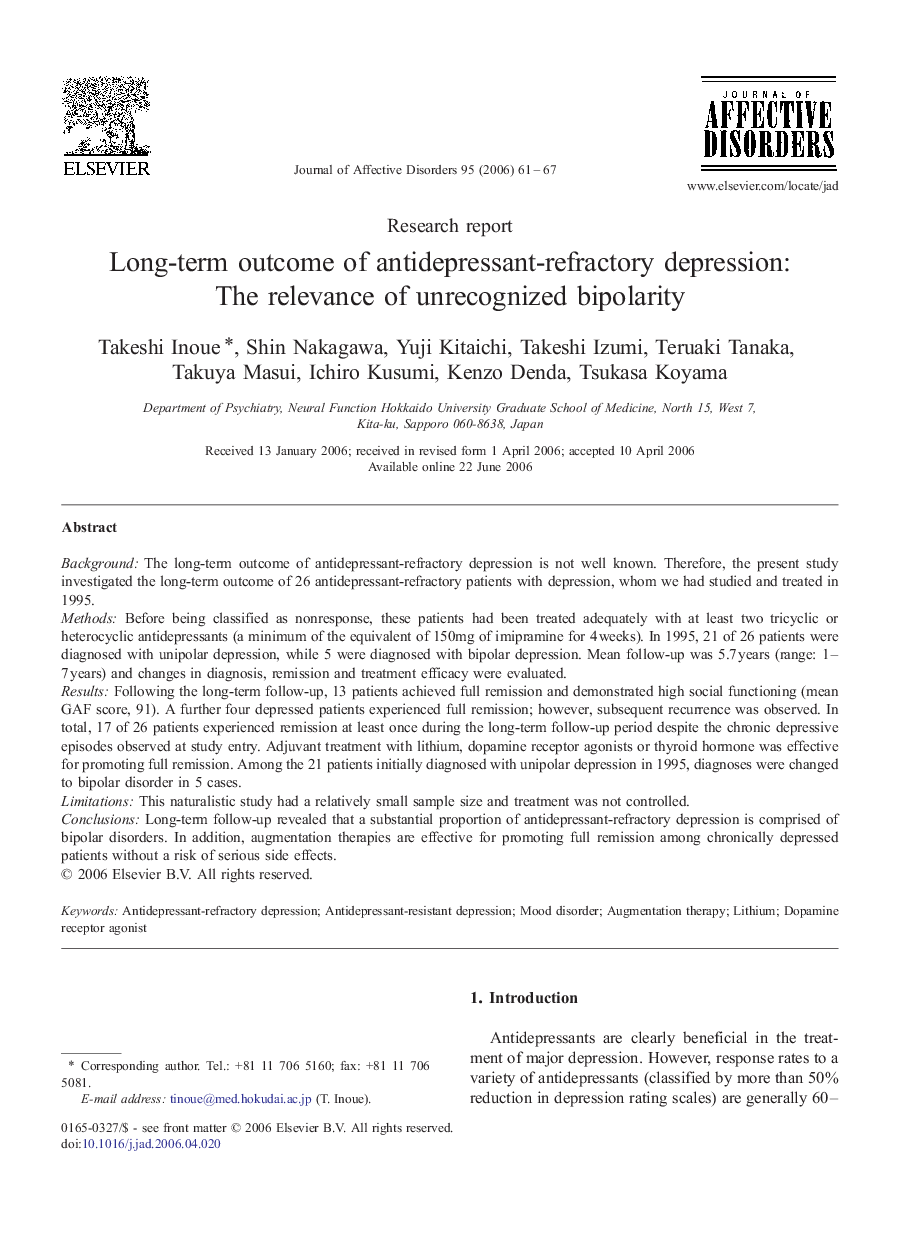| Article ID | Journal | Published Year | Pages | File Type |
|---|---|---|---|---|
| 4188115 | Journal of Affective Disorders | 2006 | 7 Pages |
BackgroundThe long-term outcome of antidepressant-refractory depression is not well known. Therefore, the present study investigated the long-term outcome of 26 antidepressant-refractory patients with depression, whom we had studied and treated in 1995.MethodsBefore being classified as nonresponse, these patients had been treated adequately with at least two tricyclic or heterocyclic antidepressants (a minimum of the equivalent of 150mg of imipramine for 4 weeks). In 1995, 21 of 26 patients were diagnosed with unipolar depression, while 5 were diagnosed with bipolar depression. Mean follow-up was 5.7 years (range: 1–7 years) and changes in diagnosis, remission and treatment efficacy were evaluated.ResultsFollowing the long-term follow-up, 13 patients achieved full remission and demonstrated high social functioning (mean GAF score, 91). A further four depressed patients experienced full remission; however, subsequent recurrence was observed. In total, 17 of 26 patients experienced remission at least once during the long-term follow-up period despite the chronic depressive episodes observed at study entry. Adjuvant treatment with lithium, dopamine receptor agonists or thyroid hormone was effective for promoting full remission. Among the 21 patients initially diagnosed with unipolar depression in 1995, diagnoses were changed to bipolar disorder in 5 cases.LimitationsThis naturalistic study had a relatively small sample size and treatment was not controlled.ConclusionsLong-term follow-up revealed that a substantial proportion of antidepressant-refractory depression is comprised of bipolar disorders. In addition, augmentation therapies are effective for promoting full remission among chronically depressed patients without a risk of serious side effects.
